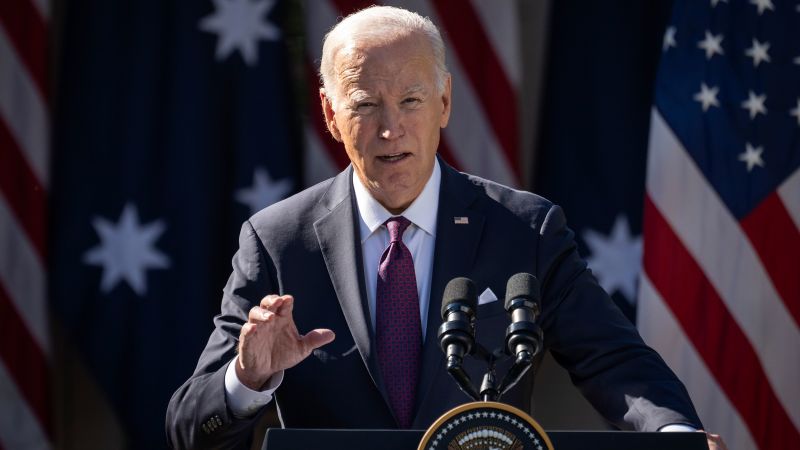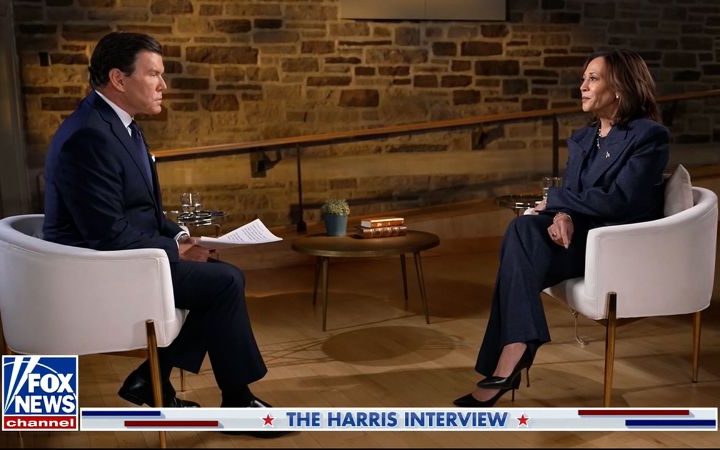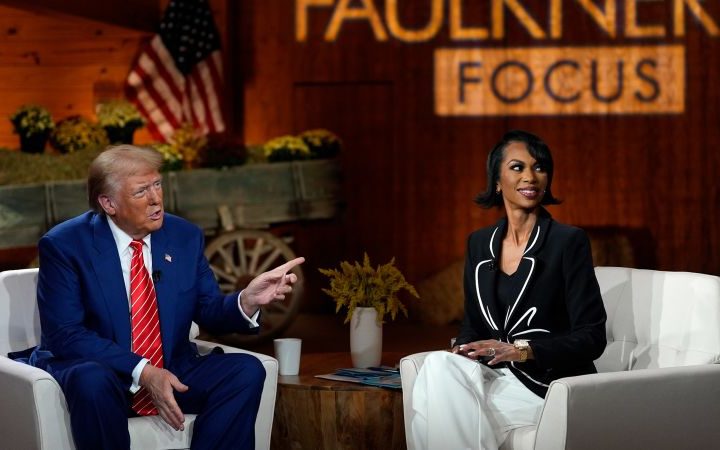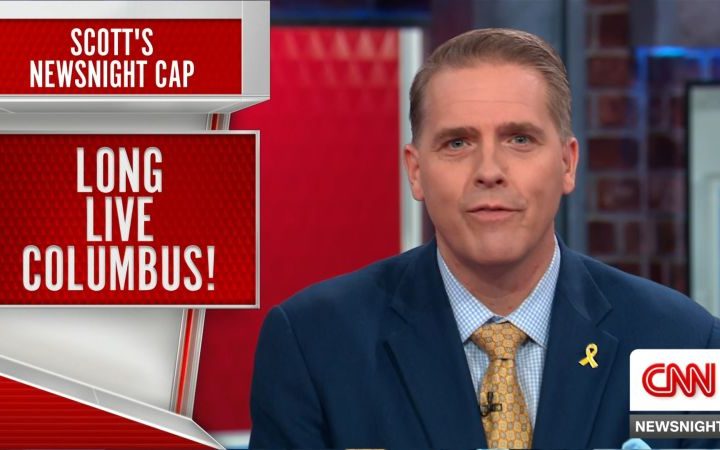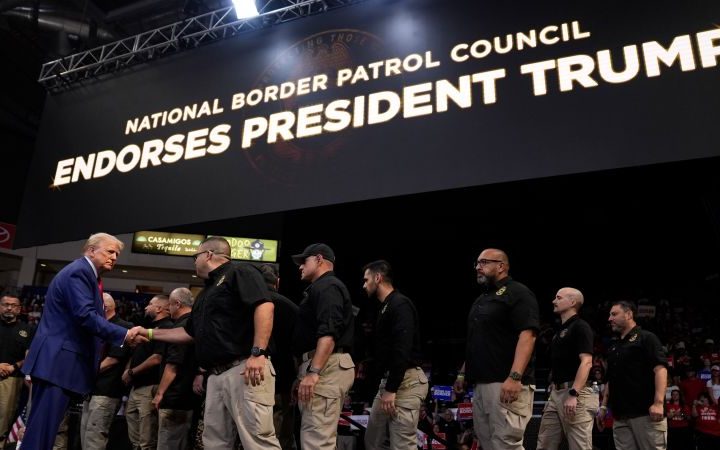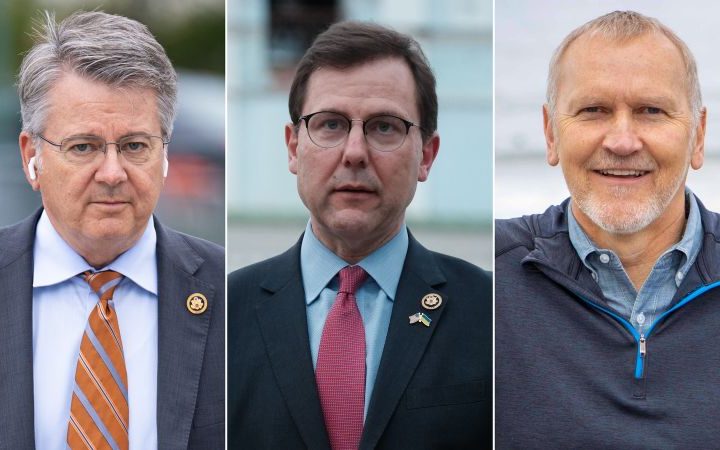Muslim-American leaders told President Joe Biden in a small private meeting Thursday he and his administration needed to show more empathy toward Palestinian lives and pushed back on his comment this week casting doubt on civilian death figures in Gaza provided by the health ministry there, according to two of the attendees.
The meeting, described as frank and productive, also included calls for a ceasefire in Gaza. It came amid frustrations in the community over the White House’s handling of the conflict between Israel and Hamas.
The president was receptive to the group’s concerns and sought to clarify his comment about the death toll, saying that he was trying to draw a distinction between Hamas and the Palestinian people, according to the attendees who spoke to CNN. Attendees left believing their message was taken to heart.
Since the conflict began earlier this month, Biden and his administration have faced harsh criticism from Muslim-Americans for how they have handled the crisis in the Middle East, including accusations of demonstrating less empathy for Palestinians than for Israelis. Some groups, many of whom led door-to-door voting campaigns for Biden in 2020, have warned the approach could become a political liability for the president as he seeks reelection.
The White House has sought to address the concerns through meetings and phone calls between administration officials, Muslim leaders and community advocates. Secretary of State Antony Blinken met earlier this week with US leaders of Jewish, Arab and Palestinian-American groups, and top National Security Council officials have also held meetings with Muslim-American leaders.
The outreach comes amid calls from many of the president’s Democratic allies amplifying concerns about mounting civilian casualties in Gaza, along with rising fears of Islamophobia in the United States. Last week, former President Barack Obama issued a rare, lengthy statement about the situation in the Middle East, offering a stark warning that cutting off food and water to Gaza could “harden Palestinian attitudes for generations.”
Biden denounced attacks on Muslim-Americans during an Oval Office address last week, and his team sought input from a variety of communities as they were drafting his remarks.
As concerns about the crisis grow, the president and his team have voiced increasing concern about the humanitarian crisis in Gaza, which has grown following the Hamas attack on Israel earlier this month. While still staunchly supportive of Israel’s right to defend itself and eradicate Hamas, Biden has been more vocal on the imperative to protect civilian lives and open the strip to humanitarian aid.
He told a reporter this week that aid was not flowing into Gaza fast enough. So far, a trickle of trucks with supplies have been allowed to pass into the territory, but not nearly enough to meet current needs.
The Palestinian enclave is running low on food, water, fuel and medical supplies for hospitals, and civilians have been unable to leave. The White House has begun calling for “humanitarian pauses” to allow for faster flow of humanitarian aid into Gaza and for civilians to leave. The US is also working to free hostages held by Hamas, a task made more difficult by heavy Israeli bombardment.
In a telephone call Wednesday, Biden discussed with Israeli Prime Minister Benjamin Netanyahu “ongoing US support for the continuous flow of humanitarian support to the civilian population in Gaza and welcomed efforts to increase this support over the coming period.” The White House declined to say whether the president specifically discussed “humanitarian pauses” with Netanyahu in the phone call.
Still, Biden’s comment at a news conference Wednesday that he had “no confidence” in death figures provided by the Gaza health ministry drew condemnation from top Muslim-American groups.
“I have no notion that the Palestinians are telling the truth about how many people are killed,” Biden said. “I’m sure innocents have been killed, and it’s a price of waging war,” he added.
Nihad Awad, executive director of the largest US Muslim advocacy organization Council on American-Islamic Relations, decried Biden’s remark.
“We are deeply disturbed and shocked by the dehumanizing comments that President Biden made about the almost 7,000 Palestinians slaughtered by the Israeli government over the past two weeks,” Awad said, adding: “President Biden should apologize for his comments, condemn the Israeli government for deliberately targeting civilians, and demand a ceasefire before more innocent people die.”
A day later, National Security Council spokesman John Kirby acknowledged thousands of Palestinian civilians have been killed during Israel’s bombardment of Gaza. But he pushed back against charges that Biden’s comments on civilian deaths in Gaza were insensitive and harsh.
“What’s harsh is the way Hamas is using people as human shields, what’s harsh is taking a couple of hundred hostages and leaving families and anxious waiting and worrying to figure out where their loved ones are, what’s harsh is dropping in on a music festival and slaughtering a bunch of young people just trying to enjoy an afternoon,” Kirby said.
“And being honest about the fact that there have been civilian casualties, and that there likely will be more, is being honest, because that’s what war is: it’s brutal, it’s ugly, it’s messy.”
The health ministry in Hamas-controlled Gaza responded to Biden’s public questioning of the reliability of their casualty figures in a statement published by the ministry Thursday. The ministry published a 212-page report listing the names of thousands of what it described as “documented deaths since October 7th” in Gaza which it said were the result of Israeli strikes.
Muslim-American leaders who met with Biden at the White House on Thursday voiced concern over what they said was a lack of public compassion for Palestinian lives, according to two of the attendees, and told the president his recent comments about the civilian death toll in Gaza were damaging.
The group also implored the president to meet with more Palestinians as part of his engagement in the conflict.
In the meeting, Biden appeared receptive to some of the attendees’ concerns. He sought to clarify his comment from a day earlier about the civilian death toll, one of the attendees said, which he said had been misconstrued and perhaps hadn’t been voiced clearly enough.
Attendees at the meeting included Minnesota Attorney General Keith Ellison; Imam Mohamed Magid of the All Dulles Area Muslim Society (ADAMS) Center in Sterling, Virginia; Wa’el Alzayat, a former State Department official who is now CEO of Emgage, a group that mobilizes Muslim-American voters; Rami Nashashibi, a Palestinian-American who is executive director of Inner-City Muslim Action Network in Chicago; and Suzanne Barakat, whose brother was a Muslim student in North Carolina murdered in 2015.
The group also raised questions about the US approach to the conflict and attendees called for a ceasefire, which the White House has so far rejected.
“What was shared with him clearly was understood by him, clearly was heard by him and clearly was felt by him,” one of the attendees said afterward, adding their hope is “the President and his administration will do better on how they speak about the conflict, about Palestinians, about Muslims, about Arabs, about the framing of what’s going on.”
Read the full article here
